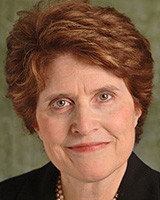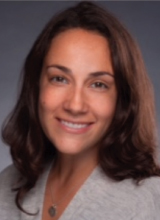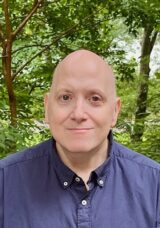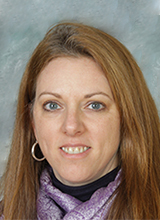Our Team
We’re a diverse team of doctors, academicians, scholars and researchers – all focused on one primary goal: To raise awareness, build support and create solutions for those affected with Non-Verbal Learning Disability and their families.
- Board of Directors
- Executive Team
- Scientific Council
- Columbia University Medical Center
- Child Mind Institute
- Yeshiva University
- Advisory Board

Laura Lemle, Ph.D. – Founder
Growing up in Manhattan, Laura Lemle attended the Ethical Culture Fieldston School, completed her undergraduate studies at Barnard College and earned her M.A. and Ph.D. degrees in clinical psychology at Yeshiva University. Laura practiced clinical psychology for nearly 20 years before choosing to enter the real estate business. Today, she runs LC Lemle Real Estate Group, a residential real estate company which owns and manages multi-family dwellings throughout Manhattan.
Throughout her life Laura has been committed to helping others. In 2013, she founded The NVLD Project, a non-profit organization dedicated to supporting people affected by this disability. The Project was inspired by her daughter who was diagnosed with Non-Verbal Learning Disability at the age of five.
In addition to founding The NVLD Project, Laura is a board member of The Ferkauf Graduate School of Psychology at Yeshiva University, and she was a member of the board of Promise Project from 2008 through 2017.
She resides in Manhattan with her three children and two dogs.

William Frosch, M.D.
Dr. Frosch was born, brought up, and educated in New York City: its public schools, Columbia College, and the NYU School of Medicine. His psychiatric training was at NYU/Bellevue and the New York Psychoanalytic Institute. He remained at NYU for many years and while there served as Assistant Dean of the Medical School, Professor, and Assistant Director of the Bellevue Psychiatric Hospital.
Dr. Frosch moved to Cornell/The New York Hospital in 1975. There he served as Professor and Vice-Chair of the Department of Psychiatry and Medical Director of The Payne Whitney Clinic. He was then appointed Interim Chair of the Department and Psychiatrist-in-Chief of The New York Hospital.

Tod Cooperman, M.D.
Tod Cooperman, M.D., is a noted researcher and commentator on consumer healthcare issues and is the President of ConsumerLab.com, which he founded 1999. ConsumerLab.com has become the leading independent evaluator of dietary supplements in the U.S. Dr. Cooperman is also the CEO and Founder of PharmacyChecker.com, which independently evaluates online pharmacies and provide drug price comparisons, and was the founder of CareData Reports, Inc. a consumer research company. Earlier in his career, Dr. Cooperman was a Business Analyst with Bristol-Myers Squibb Company, Director of Business Development for Synaptic Pharmaceuticals, and a consultant with The Wilkerson Group. Dr. Cooperman received his M.D. from Boston University School of Medicine in 1987 and a B.A. in Medical Sciences with a minor in Economics from Boston University.

Rebecca Zilkha Halpin
Rebecca is a mother of three, currently navigating the world of NVLD. She graduated from Boston University with a BA in Secondary Education and completed her coursework for a Master’s in Special Education at Simmon’s College in Boston. She taught high school French before becoming a full-time mother.

Paula Dennis – Executive Director
With more than 20 years expertise in marketing and communications, Paula joined The NVLD Project in 2013. As Executive Director, she is responsible for overseeing all aspects of the organization and works closely with the Founder and staff to grow and expand the Project’s reach and impact.
Prior to working with The NVLD Project, Paula worked for nearly two decades in the fashion industry where she held executive positions with several renowned fashion houses. This included Pamela Dennis where she was Director of Public Relations for more than 15 years and Darby Scott. Her work in fashion covered a multitude of marketing and entertainment disciplines, including public relations, media, brand awareness, fashion shows, casting and publicity.
Paula holds a Master of Arts in speech/language pathology from New York University and serves on several fundraising committees for both academic and charitable institutions.
She resides in Manhattan with her family.

Samantha Nicks – Development and Communications Manager
Samantha joined The NVLD Project in 2017 as the Development and Communications Manager. In her role, she leads donor relations, oversees digital and social media strategies, and drives outreach and communications efforts with donors, partners, and the NVLD community.
Before joining the organization, Samantha spent five years as an educator in Texas and Spain, teaching journalism and English. Her diverse professional background also includes experience in sales, marketing, public relations, real estate, retail management, and photography. She holds a Master of Arts in Strategic Communication and Innovation from Texas Tech University and a Bachelor of Arts in Public Relations and Spanish.
Samantha is also an active volunteer with Habitat for Humanity, reflecting her passion for community service. In 2022, she relocated to Colorado, where she enjoys exploring the mountains with her golden retriever.

Arifah Islam – Social Media and Marketing Associate
Arifah Islam joined The NVLD Project in 2023 as the Social Media and Marketing Associate, where she plays a key role in crafting marketing materials, engaging with the community, and creating advertising content to promote the organization’s mission and resources.
Currently pursuing a Bachelor of Science at Long Island University, Arifah is deeply committed to contributing to the well-being of her community. Her academic focus reflects her dedication to making a positive impact. Before joining NVLD, Arifah gained diverse experience in retail, medical assisting, tutoring, and digital photography—skills that have shaped her holistic approach to marketing and communication.
As a New York resident, Arifah draws inspiration from the city’s energy and cultural vibrancy. With a passion for continuous learning and professional development, she is always seeking new ways to grow both personally and in her career.

Mark A. Riddle, M.D.- Chair
Dr. Riddle is a Professor of Psychiatry and Pediatrics at the Johns Hopkins University School of Medicine. The focus of Dr. Riddle’s research, teaching and clinical practice is pediatric psychopharmacology, particularly medication side effects. He served as Director of the Division of Child and Adolescent Psychiatry at Johns Hopkins (1993-2009) where he led a program of interventions research, both psychopharmacologic and psychosocial. He was the founding chair of the NIMH’s Interventions Review Committee for Disorders Involving Children and Families. He represented pediatric psychiatry on the Institute of Medicine’s Committee on Review of Pediatric Studies Conducted Under the Best Pharmaceuticals for Children Act (BPCA) and the Pediatric Research Equity Act (PREA). This Committee’s published report was an important stimulus/source document for federal legislation that made permanent the requirement that all new drugs potentially used in youth have safety and efficacy studies conducted in children and adolescents. He serves as a member of the National Institute of Child Health and Human Development-sponsored Data Monitoring Board for the BPCA. Dr. Riddle’s publications include over 300 research articles, commentaries, reviews, chapters and edited volumes, including Pediatric Psychopharmacology, a book published by the American Academy of Pediatrics.

Geraldine Dawson, PH.D., FAPA, FAPS
Dr. Geraldine Dawson is the William Cleland Distinguished Professor of Psychiatry and Behavioral Sciences at Duke University, where she also is Professor of Pediatrics and Professor of Psychology & Neuroscience. Dawson is the Director of the Duke Center for Autism and Brain Development and the Duke Autism Clinic. She is former director of the Duke Institute for Brain Sciences. She currently directs the NIH Autism Center of Excellence at Duke University (P50) focused on a translational digital health and computational approach to autism screening tools, outcome measures, and brain-based biomarkers. Dawson is a member of the American Academy of Arts and Sciences. She served as President of the International Society for Autism Research and was Founding Director of the University of Washington Autism Center. From 2008-2013, Dawson was the first Chief Science Officer for Autism Speaks. She served on the federal Interagency Autism Coordinating Committee for two terms. Dawson was awarded the American Psychological Association Distinguished Career Award and Association for Psychological Science Lifetime Achievement Award, among other honors. She is a Fellow of the Association for Psychological Science, American Psychological Association, and International Society for Autism Research.

Stephen P. Hinshaw, Ph.D.
Stephen Hinshaw is Distinguished Professor of Psychology at the University of California, Berkeley and Professor of Psychiatry and Behavioral Sciences at UC San Francisco. His research focuses on developmental psychopathology, ADHD in youth and young adults, sex differences, and clinical trials of psychosocial and pharmacologic interventions. He also investigates mental illness stigma and means of reducing it.
He has authored over 410 articles, chapters, and commentaries plus 12 books. His memoir, Another Kind of Madness, received Best Book in Memoir/Autobiography from the American BookFest in 2018. His latest book is Straight Talk about Girls with ADHD (Guilford, 2022).
His national and international award include the following: James McKeen Cattell Fellow Award (Association for Psychological Science, 2016); Distinguished Scientific Contributions to Child Development Award (Society for Research in Child Development, 2017); Ruane Prize for Outstanding Achievement in Child and Adolescent Psychiatric Research (Brain & Behavior Research Foundation, 2019); Distinguished Scientific Contributions Award (American Psychological Association, 2020); Sarnat International Prize in Mental Health (National Academy of Medicine, 2020).
He was inducted into the American Academy of Arts and Sciences in 2021 and also received the Outstanding Mentor Award from the Association for Psychological Science (2023). His extensive media coverage includes the New York Times, Washington Post, Wall Street Journal, CBS Evening News, Today Show, and many more.

James McCracken, M.D.
Dr. James McCracken is the Joseph Campbell Professor of Child Psychiatry at the David Geffen School of Medicine at UCLA, where he serves as Director of the Division of Child and Adolescent Psychiatry in the Department of Psychiatry. He is widely known for his involvement in seminal NIMH clinical trials that have guided current evidence-based treatments for autism, ADHD, pediatric anxiety, and OCD. His current research is focused on identifying new treatments and treatment biomarkers for a range of childhood cognitive and neurodevelopmental disorders. Dr. McCracken attended Baylor College of Medicine, and completed residency training at Duke before moving to UCLA where he received clinical and research training in child psychiatry under Dennis Cantwell and Peter Tanguay. He has authored or co-authored more than 300 articles and chapters in the field of child psychiatry and serves on the editorial board of Molecular Autism. Dr. McCracken is the recipient of several honors and awards, including the American Psychiatric Association’s Blanche Ittelson Award for Research in Child Psychiatry, the American Academy of Child and Adolescent Psychiatry’s George Tarjan Award for Contributions in Developmental Disabilities and the Elaine Schlosser Lewis Award for Research on Attention-Deficit Disorder.

Peter Szatmari, M.D., M.Sc., FRCPC, FRSC
Until October 1st 2021, Dr. Szatmari was the Chief of the Child and Youth Mental Health Collaborative between CAMH, the Hospital for Sick Children and the University of Toronto. He has worked in the field of child and youth psychiatry for over forty years in the areas of ADHD, disruptive behaviour disorders, depression and anxiety and impairment due to mental disorders. He is well known for his work in autism and has contributed to advances in diagnosis and classification, in genetics and in outcome studies. Currently, he is the Director of the Cundill Centre for Child and Youth Depression at the Centre for Addiction and Mental Health (CAMH), a research centre dedicated to discovery, dissemination and global leadership in the field of child and youth depression. He is also the co-lead of the Precision Child and Youth Mental Health Initiative at the Hospital for Sick Children. In 2021, he was elected a Fellow of the Royal Society of Canada for his contributions to mental health.

Benedetto Vitiello, M.D.
Benedetto Vitiello, M.D. is a psychiatrist and pediatrician with expertise in psychopharmacology and treatment research. A graduate of the University of Pavia Medical School, Pavia, Italy, he trained in pediatrics in Italy and in psychiatry and child and adolescent psychiatry in the U.S.A. From 1989 until 2016, he worked at the National Institutes of Health in Bethesda, Maryland, U.S.A., where he was Chief of the Child and Adolescent Treatment and Preventive Interventions Research Branch of the National Institute of Mental Health. From 2007, he is adjunct Professor in the Mental Health Department of the Johns Hopkins University School of Public Health, in Baltimore, U.S.A. Since 2016, he is Professor of Child and Adolescent Neuropsychiatry at the University of Turin, Italy. His research has focused on developing and testing effective treatment and preventive interventions for children, adolescents, and adults with mood and anxiety disorders, psychosis, attention deficit/hyperactivity disorder, autism, and other neurodevelopmental disorders. He has contributed more than 350 scientific publications to the field of mental health.

Agnes Whitaker, M.D.
Clinical Professor of Psychiatry, Columbia University
Dr. Whitaker has been engaged in both clinical service and research in the Division of Child Psychiatry at Columbia for three decades. Her clinical work has focused on the mental health care of children, adolescents, and adults with developmental disabilities; she is especially interested in supervising and assisting trainees with the evaluation and treatment of complex clinical issues that involve developmental, medical, and psychiatric factors. Her research has focused on the relation of early brain injury to psychiatric disorder later in life as revealed by long-term longitudinal studies of low birthweight / premature infants.

Jeremy Veenstra-VanderWeele, MD – Director, Division of Child and Adolescent Psychiatry
Dr. Veenstra-VanderWeele is a child and adolescent psychiatrist who uses molecular and clinical neuroscience research tools in the pursuit of new interventions. His molecular neuroscience laboratory at Columbia University and the New York State Psychiatric Institute focuses on genetic mouse models with abnormal social or repetitive behavior. His clinical/translational research program at the NewYork-Presbyterian Hospital Center for Autism and the Developing Brain studies potential treatments in autism and related genetic syndromes.
Dr. Veenstra-VanderWeele serves as an Associate Editor of Autism Research, the Journal of the International Society for Autism Research. He also co-chairs the Developmental Brain Disorders Study Section for the National Institutes of Health. His work has garnered multiple awards, including the George Tarjan Award for Contributions in Developmental Disabilities from the American Academy of Child and Adolescent Psychiatry and the Blanche Ittelson Award for Research in Child Psychiatry from the American Psychiatric Association.

Laura Mufson, Ph.D. – Associate Director, Division of Child and Adolescent Psychiatry
Laura Mufson, Ph.D., is a Professor of Medical Psychology (in Psychiatry) at Columbia University Medical Center (CUMC), associate director of the Division of Child & Adolescent Psychiatry, and co-director of the Office of Clinical Psychology at CUMC. She is also director of Clinical Psychology and unit chief of the Children’s Day Unit at New York State Psychiatric Institute (NYSPI). She is director of Training for the Child Track of the APA–Accredited Predoctoral Internship in Clinical Psychology and a faculty member of the Division of Child & Adolescent Psychiatry’s NIMH T32 Postdoctoral Research Fellowship.
Dr. Mufson is the developer of the adolescent adaptation of interpersonal psychotherapy for depression (IPT-A) and is the leading expert on its use with depressed adolescents. She is coauthor of the prevention model (IPT-AST) and the model for preadolescent depression (FB-IPT). She is the author of numerous publications on adolescent depression, temperament, psychopathology, and risk factors for psychopathology, as well as articles and book chapters on the treatment of adolescent depression and interpersonal psychotherapy. Dr. Mufson conducts training workshops on IPT-A throughout the United States, the United Kingdom, Europe, and Scandinavia.
Dr. Mufson’s primary research interest is in the evaluation of the efficacy and effectiveness of empirically supported psychotherapies, as well as the identification of which treatments work best for whom. In addition, she is interested in the use of technology to change clinician behavior and improve adherence to effective treatment tools. She is a principal investigator, co-investigator, and/or consultant with colleagues on numerous grants studying adaptations of IPT-A to be delivered in schools, primary care clinics, and community clinics serving minority populations. Her areas of expertise include the evaluation of empirically supported intervention outcomes in clinical trials conducted in research and community settings, the implementation of treatments in the community, and models for training community clinicians in empirically supported psychotherapies. In addition, her studies have looked at the mediators and moderators of treatment response, including stress response measured by salivary cortisol levels, levels of interpersonal conflict, and comorbid disorders.

Beatrice Beebe, Ph.D.
Beatrice Beebe Ph.D. is Clinical Professor of Medical Psychology (in Psychiatry), College of Physicians & Surgeons, Columbia University; Department of Child and Adolescent Psychiatry, New York State Psychiatric Institute. She directs a basic research lab on 4- and 12-month mother-infant communication, prior to the infant’s development of language.
Infant preverbal learning of communication patterns lays the foundation for emotional and cognitive development across the lifespan. The lab specializes in the microanalysis of face-to-face non-verbal communication. Resources include a split-screen video-recording and audio-recording studio and an open play space for observing infants and children with their parents.
Her research program investigates mother-infant face-to-face communication and infant social development: the dyadic mechanisms organizing mother-infant social communication, the role that maternal distress plays in this communication, the effects of early mother-infant communication patterns on emerging infant attachment styles, and the long-term continuity of communication and attachment styles from infancy to young adulthood. Video and audio microanalysis of mother-infant behavior has been her focus for four decades. This precise coding, together with a sophisticated statistical method of multi-level time-series analysis, functions like a social microscope, identifying different patterns of contingent relating. These methods have been used in three NIH/NIMH RO1 Grants. She was co-investigator on NIMH RO1 41675 (1985-1990), Interpersonal timing and infant social development, which documented that the degree of contingent vocal coordination between mothers and infants, and strangers and infants, at 4 months, predicted infant attachment at one year. She was PI on NIMH RO1 MH 56130 (1999-2004) which also predicted attachment at one year from mother-infant and stranger-infant interaction at 4 months. In addition, this study showed the impact of maternal depression and anxiety on mother-infant interaction. She have also been the PI of a longitudinal follow-up study of these two cohorts, from infancy to young adulthood, funded by the American Psychoanalytic Association and the International Psychoanalytic Association. This study predicted young adult attachment from degrees of mother-infant and stranger-infant vocal coordination in infancy at 4 and 12 months. Currently she is co-PI (with Julie Herbstman) on R01ES027424, Prenatal endocrine-disrupting chemicals and social/cognitive risk in mothers and infants: Potential biologic pathways. For over a decade, from the spring of 2002, she directed a clinical/research primary prevention project following a cohort of 36 women who were pregnant and widowed on September 11, 2001. Her clinical work focuses on primary prevention in mother-infant dyads at risk for dysregulated social development, a topic on which she has published five articles.

Prudence Fisher, Ph.D.
Dr. Prudence Fisher received her Bachelor’s degree (Psychology) from Johns Hopkins University and her M.S. and Ph.D (2001) from Columbia University School of Social Work.
Dr. Fisher is Associate Professor of Clinical Psychiatric Social Work in the Department of Psychiatry at Columbia University College of Physicians and Surgeons and Research Scientist at New York State Psychiatric Institute (Division of Child and Adolescent Psychiatry). Dr. Fisher’s main research focus is on the development and testing of assessment measures for children and adolescents. She is widely acknowledged in the field at large as someone who is knowledgeable about assessment issues and actively collaborates with investigators both within the Department of Psychiatry at Columbia and at other institutions and a consultant for federal and state agencies. Dr. Fisher has been instrumental in the development of numerous versions of the Diagnostic Interview Schedule for Children (DISC), the most widely used diagnostic interview for youth, and of many other widely used measures, including the Children’s Global Assessment Scale (CGAS), the Columbia Impairment Scale, and the Columbia Suicide Severity Rating Scale (C-SSRS), among others.
Dr. Fisher completed an NIMH project to develop an innovative computer administered interview designed to improve the detection of side effects from psychotropic medications in adolescents, the Columbia Health and Adverse Reactions to Medications Screen (CHARMS) and recently completed an NIMH funded grant for a study to address the validity of diagnostic categories and criteria for child and adolescent psychiatric disorders.
Dr. Fisher was an advisor to five of the DSM-5 workgroups/committees and principal investigator on one of the DSM-5 child field trials. She also received two contracts from American Psychiatric Association to undertake analyses to inform DSM-5 decisions.
Currently Dr. Fisher is Principal Investigator on a CDC funded project to update the DISC for DSM-5 and is faculty on the Child Psychiatry Research Training Grant.
Dr. Fisher has an adjunct faculty appointment at the Columbia University School of Social Work where she teaches a popular course on child and adolescent psychopathology to Master’s students. Since 2007, she has been a member of the review panel for the Journal of the American Academy of Child and Adolescent Psychiatry and serves as an occasional reviewer for a number of journals, typically for studies focusing on diagnostic assessment issues.
In addition to her work on assessment issues, Dr. Fisher has also been involved in studies on adolescent suicide and its aftermath. Since 1989 has been member of the scientific advisory board at the American Foundation for Suicide Prevention for which she reviews grants and is since 2012 has been on the Editorial Board for Archives of Suicide Research.

Hillary Litwin, Ph.D.
Dr. Litwin joined the NVLD Project in 2018 as a research assistant in the Division of Child and Adolescent Psychiatry at Columbia University/New York State Psychiatric Institute (NYSPI). Under the direction of Prudence Fisher, Ph.D., Dr. Litwin’s work included writing and programming online surveys for individuals with NVLD, helping conceptualize a “consensus” clinical definition for NVLD, co-writing vignettes for a clinician reliability study, and analyzing data and co-writing scientific papers. During this time, Dr. Litwin also earned her PhD in Clinical Psychology from the New School for Social Research. In her PhD program, she managed research projects in a culture and mental health lab, received extensive training in evaluating and treating child and adult psychopathology in underserved and medically complex populations, taught graduate-level courses on psychological testing, and conducted research on NVLD. Her master’s thesis examined the rates of ADHD symptoms, ADHD diagnoses, and the Broad Autism Phenotype in adults with NVLD. For her dissertation, she examined deficits in attention, motor skills, and perception (the “DAMP” Syndrome) and behavioral phenotypes of NVLD in a sample of youth and adults with NVLD.
Dr. Litwin continues to work with Dr. Fisher as postdoctoral research scientist, with a focus on refining and testing the consensus definition, exploring the presence of NVLD in other neurodevelopmental disorders, and examining NVLD as a risk syndrome. She is also a member of the Methodology & Measurement, Whitaker Scholar, and Cognitive Development & Neuroimaging Laboratory groups at NYSPI, and a clinical pediatric neuropsychology fellow in the PROMISE program at Columbia University Irving Medical Center. Her interests include psychiatric nosology and assessment, neuropsychological testing, research methodology, and etiological factors and trajectories of childhood disorders.

David Pagliaccio, Ph.D.
Dr. David Pagliaccio received a Ph.D. in neuroscience from Washington University in St. Louis. His graduate work with Dr. Deanna Barch focused on the effects of stress and stress-system genes on brain structure and function in children with early-onset depression. During his postdoctoral fellowship with Drs. Daniel Pine and Ellen Leibenluft, Dr. Pagliaccio continued fMRI research to examine the neural underpinnings of pediatric anxiety and irritability. As a project manager with the Marsh Lab, he is using neuroimaging to explore alterations in brain circuitry and functioning relating to impulsive-compulsive behaviors, learning disorders, and other pediatric pathologies.

J. Blake Turner, Ph.D.
J. Blake Turner, Ph.D., is an Assistant Professor of Clinical Social Science (in Psychiatry) in the Division of Child & Adolescent Psychiatry at Columbia University and a research scientist at the New York State Psychiatric Institute. Dr. Turner has extensive research interests within both child and adolescent psychiatry and within social epidemiology. In child psychiatry, a major emphasis of his work has been the phenomenology of psychiatric disorders. He has held an R01 from the National Institute of Mental Health to examine alternative definitions of psychiatric disorders in children and adolescents. In concert with this project, he served as an advisor to the DSM-5 workgroups for child and adolescent disorders and ADHD and disruptive disorders. More recently, he has been researching trajectories of neurodevelopmental disorders in a low-birth-weight/pre-term cohort. He has also examined phenotypic variation in ASD children in this same cohort, as well as in the Simons Simplex data set.
In social epidemiology, he has published extensively on the physical and mental health effects of social stressors, on measurement issues in the assessment of stress over the life course, and on PTSD and other psychiatric sequelae of exposure to combat in military veterans.
Dr. Turner has considerable expertise in research methods and quantitative data analysis. A portion of his current position involves serving as an “in-house” consulting methodologist for the Division of Child & Adolescent Psychiatry.

Harold S. Koplewicz, MD
Harold S. Koplewicz, MD, is the founding President and Medical Director of the Child Mind Institute and is a senior child and adolescent psychiatrist in the Psychopharmacology Center. One of the nation’s leading child and adolescent psychiatrists, he is known as an innovator in the field, a strong advocate for child mental health and a master clinician.
The mission of the Child Mind Institute, founded in 2009 by Dr. Koplewicz, Brooke Garber Neidich and Debra Perelman, is to:
- Offer best-in-class evidence-based clinical care
- Engage the global scientific community in visionary research to discover more effective treatments
- Educate and empower parents by providing trustworthy information and resources
- Use passionate advocacy to remove the stigma associated with psychiatric disorders
Dr. Koplewicz continues to guide the Institute towards accomplishing this mission. He has been repeatedly recognized in America’s Top Doctors, Best Doctors in America and New York Magazine‘s “Best Doctors in New York,” and was named one of WebMD’s 2014 Health Heroes for his advocacy on behalf of children with psychiatric or learning disorders. He has been the editor-in-chief of the Journal of Child and Adolescent Psychopharmacology since 1997.

Michael P. Milham, MD, PhD
Michael P. Milham, MD, PhD, is an internationally recognized neuroscience researcher, the Chief Science Officer and the founding director of the Center for the Developing Brain at the Child Mind Institute. He is also a practicing child and adolescent psychiatrist.
Dr. Milham’s research interests include investigating how functional and structural connectivity in the brain may underlie differing forms of mental illness, and seeking to chart the course of brain development in healthy and affected children.
In order to accomplish these goals, Dr. Milham has worked to advance a Big Data research agenda in the neuroimaging community, which focuses on open data sharing as a means of achieving the large-scale samples needed to capture the broader range of presentations in psychiatry. He co-founded the 1000 Functional Connectomes Project and founded its International Neuroimaging Data-Sharing Initiative (INDI). These efforts have helped to bring major consortia to the community, including the ADHD 200, Autism Brain Imaging Data Exchange (ABIDE) and Consortium for Reliability and Reproducibility (CoRR).
Dr. Milham is also the founder and director of the Nathan Kline Institute Rockland Sample initiative, which has worked to map brain development, maturation and aging (ages 6 to 85 years old) in 1000 individuals from the Rockland Community, openly sharing all data generated with other scientists.
Most recently, he has founded the Child Mind Institute Healthy Brain Network – an initiative aiming to create a large-scale (10,000 participants) resource for the scientific community to study child and adolescent mental health.
Dr. Milham is one of our nation’s most prolific neuroimaging researchers, with over 250 articles published since 2005 and recognition as one of Thomson Reuters/Clarivate Highly Cited Researchers (top 1 percent for Neuroscience and Behavior) every year since 2014. He was also the recipient of the Organization of Human Brain Mapping’s highly prestigious Wiley Young Investigator Award in 2014.
He has published in the most scientifically respected journals, including the American Journal of Psychiatry, Journal of Neuroscience, Biological Psychiatry, Proceedings of the National Academy of Science and JAMA-Psychiatry. He has also received honors and funding support from the National Institute of Mental Health (NIMH).
Dr. Milham continues to treat a range of child, adolescent and adult patients for mental illness, both with medications and psychotherapy.

Matthew M. Cruger, Ph.D.
Matthew M. Cruger, PhD, is the Clinical Director and a senior neuropsychologist in the Learning and Development Center at the Child Mind Institute.
Dr. Cruger specializes in neuropsychological examinations, cognitive assessments and other evaluations for gifted children as well as those with learning difficulties, autism spectrum disorders and ADHD. A strong advocate for children and teens with special education needs, he uses empirically supported treatments to improve both his patients’ emotional functioning and their academic achievement.
Before coming to the Child Mind Institute, Dr. Cruger spearheaded a program to help teens with learning difficulties transition to college and helped develop an evidence-based treatment for improving children’s organizational skills. He has taught undergraduate and graduate courses in diagnostic assessment, social psychology, personality theory, research methods, pathological conditions of the brain, and child and adolescent brain development.
Dr. Cruger has performed psychoeducational evaluations in clinical settings throughout New York, including through the Prep for Prep program. He has also led psychoeducational workshops for couples wishing to enhance their communication skills and improve the quality of their marriages.

Amy Margolis, Ph.D.
Dr. Amy Margolis is a professor of psychiatry and behavioral health at The Ohio State University and director of the Environment, Brain, and Behavior Lab as well as the Psychology, Psychiatry, and Public Health Collaborative Learning Disability Innovation Hub funded by the National Institute of Child Health and Human Development. She holds a doctorate in Applied Educational Psychology: School Psychology from Teachers College, Columbia University, and is trained as a clinical neuropsychologist with two decades of experience assessing and treating children with learning and attention disorders.
Dr. Margolis is the principal investigator on a number of federally funded projects that use neuroimaging (magnetic resonance imaging [MRI] and electroencephalography [EEG]) in longitudinal birth cohorts to study the effects of prenatal exposure to neurotoxicants on brain and behavior outcomes. Her lab’s research focuses on identifying neural correlates of environmentally associated reading and math problems in children living in the context of economic disadvantage. In addition the lab studies environmentally associated phenotypes of attention, substance use, and thought problems.
In a complementary line of research, the lab studies how disruptions in visual-spatial processing and circuits underlying such capacities impair children’s functioning. Dr. Margolis has established the prevalence, etiology, pathophysiology, and treatment of nonverbal learning disability (NVLD), which was first described in the 1960s, and differentiates children with deficits in visual-spatial reasoning from those with language-based (verbal) learning problems. She published the first population estimate of NVLD, placing rates at 3 percent in North American youth, and the first functional MRI studies of NVLD, linking brain alterations with functional impairments in youth with NVLD. She is project lead, along with Dr. Prudence Fisher, in reconceptualizing NVLD as developmental visual-spatial disorder (DVSD) and developing a submission to the DSM5TR for consideration of the disorder in the manual. Her work has also shown that prenatal exposure to air pollution and social stress are associated with reduced hippocampal volumes and visual-spatial processing, pointing to a possible etiologic pathway of DVSD/NVLD.
Dr. Margolis is the author of two books on learning disorders and DVSD/NVLD and over 80 peer-reviewed papers. She has served as the text reviser for the chapter on specific learning disorder for DSM 5TR and as co-chair of the ECHO (Environmental Influences on Children’s Health Outcomes) Neurodevelopment Working Group.

Leslie Halpern, Ph.D.
Dean Leslie Halpern is a Professor of Psychology at Ferkauf Graduate School of Psychology who joined the faculty in August 2020. She earned a BA in Political Science and MS in Educational Psychology/Special Education, both from the University at Albany, SUNY, and her PhD in Clinical Psychology from Vanderbilt University. She completed her clinical internship, and a 2-year postdoctoral fellowship in Child Development and Pediatrics at the Warren Alpert Medical School of Brown University.
Dean Halpern’s research has focused on child temperament, executive functioning, emotion regulation and coping, pediatric psychology, and parenting. Her research has been funded by the National Institute of Child Health and Human Development, she has numerous publications, and has presented her research at national and international conferences.
Prior to joining the Ferkauf faculty, Dean Halpern spent 24 years at University at Albany, SUNY. At the University at Albany, she was a member of the faculty of the Department of Psychology, and held several administrative positions, including Program Director and Director of Clinical Training of the Doctoral Program in Clinical Psychology, Associate Dean for General Education, Interim Director of the Honors College, and most recently, Chair of the Department of Psychology. She is also a licensed Psychologist in the State of New York.

David A. Lynch, Ph.D.
David Lynch, Ph.D., is a clinical psychologist specializing in person-centered and strength-based approaches. Dr. Lynch completed his Masters and Doctoral degrees in Clinical Psychology at Teachers College, Columbia University. Over the course of his training, he has worked within the contexts of inpatient psychiatry, community mental health clinics, correctional mental health, consultation psychiatry, and comprehensive psychiatric emergency services. While completing his graduate training, Dr. Lynch was a staff member at Columbia University’s department of Undergraduate Student Life, training student staff members on mental health first aid and promoting overall wellness among college students. He completed his predoctoral internship at the Mount Sinai Icahn School of Medicine site at Elmhurst Hospital Center, providing a vast array of psychiatric services within the multiculturally diverse context of Queens, New York. Dr. Lynch was a Marie Kessel Fellow at Columbia University Irving Medical Center and went on to be an Assistant Professor of Psychology within the Lieber Recovery Clinic, a specialty clinic supporting neurodivergent young adults, with a focus on promoting intrinsic motivation. Dr. Lynch has extensive training in Acceptance and Commitment Therapy (ACT), PEERS, executive functioning training, neurodiversity-affirming care, and gender-affirming care. Dr. Lynch’s research focuses on the conditions necessary to promote positive outcomes within psychotherapy, particularly adapting and developing approaches to meet specific support needs. Dr. Lynch is currently the Assistant Director of the Parnes Clinic, Coordinator of the Lemle Clinic for Non-Verbal Learning Disorder, and Assistant Clinical Professor at Ferkauf Graduate School of Psychology, Yeshiva University. Dr. Lynch supports the mission of the NVLD Project and other organizations that promote interdependence, authenticity, community, and creative expression. He is also the founder of Chiaroscuro Wellness. Across these activities, Dr. Lynch is committed to offering compassionate, evidence-based, and identity-affirming mental health care.

Jessica Broitman, Ph.D.
Dr. Broitman has been involved in researching and treating children with non-verbal learning disabilities and their families for more than 25 years. She co-authored five books on that topic for practitioners and parents, including: Learning Disorders across the Lifespan – a mental health Framework (2023), Nonverbal Learning Disabilities in Children: Bridging the Gap Between Science and Practice (2011), Treating NVLD in Children (2013), and NVLD and Developmental Visual-Spatial Disorder in children (2020), as well as numerous chapters and articles. She is currently involved in several research projects concerning the treatment and understanding of NVLD, has a special interest in helping professionals and families understand and treat this disorder, and is available for consultations.
Currently a psychoanalyst practicing in Berkeley since 1980, she began her career in Boulder, Colorado, in 1973. As a member of the Intensive Treatment Team of the Boulder Mental Health Center, she ran the Gordon Beyer project, which was one of the first residential treatment programs for young people with schizo- phrenia and bi-polar illness in the country. After moving to California in 1980 she became the program coordinator for the Creative Living Center, a day treatment program for adults with mental illness. During this time, she became involved with Joseph Weiss, Hal Sampson, and Control Mastery Theory. She formalized the San Francisco Psychotherapy Research Group (http://sfprg.org) as a non-profit organization in 1993. She is president emerita of SFPRG. She was instrumental in the initiation of SFPRG’s Psychotherapy Training Center and Clinic and served as the executive director for 15 years. In 2017, she helped create the International Control Mastery Therapy Center (CMTCenter- https://cmtcenter.net) and currently serves as the president of the CMTCenter. She frequently lectures on Weiss’s Control Mastery Theory worldwide.

Bob Cunningham
Bob Cunningham, Ed.M., serves as advisor-in-residence on learning and attention issues for Understood.org. He is also Head of School at the Robert Louis Stevenson School and Chairman of CDE Career Institute.
Bob consults with schools, organizations, and families on matters related to learning and attention issues. He is a trustee of the Purnell School and a professional advisory board member for the National Center for Learning Disabilities, Story Share, and several other education-related nonprofit organizations. Previously, he was Head of School for the Gateway Schools in New York City.

John (Jack) M. Davis, Ph.D.
John (Jack) M. Davis, Ph.D., is the co-author of Nonverbal Learning Disabilities in Children: Bridging the Gap Between Science and Practice (2011). He is currently a Professor at California State University, East Bay, and Chair of the Educational Psychology Department, where he teaches and supervises.
He received his Ph.D. from the U.C. Berkeley School Psychology program and did clinical postdoctoral studies to become a licensed psychologist. He has a special interest in learning and developmental disorders having been the director of a school and clinic for students with learning disabilities for 13 years, which provided diagnostic and intervention services.
His current clinical work is primarily with children and adults with learning disorders. His writing and research interests include articles and book chapters in the areas of mental health consultation, suicide/crisis intervention, and learning disorders.

Abigail Diamond
Abby Diamond is the Director of Academic Support at Trevor Day School. Prior to her current position, she spent 10 years as a learning specialist and the chair of the Learning Center at the Ethical Culture Fieldston School. During her time at Fieldston, Abby spearheaded a collaboration between school leaders and administrators and The NVLD Project. Abby has also worked at the Francis Parker School, a progressive independent school in Chicago and the Churchill School and Center, a non-public school for students with language-based learning disabilities in New York City.
Abby holds a bachelor’s degree in Education from Northwestern University and a master’s degree in Elementary Education and an advanced master’s degree in Literacy from the Bank Street College of Education.

Eric Greenberg
Eric Greenberg is a leading college-advising, test-preparation and tutoring expert. Since establishing the Greenberg Educational Group in New York City in 1991, Greenberg and his team have helped many students of all ages achieve their academic goals. The company has established a stellar reputation for providing strategic admission and application advising (high school, college and graduate school), test preparation and academic tutoring. Greenberg Educational Group provides personalized service (in person or online). They have clients throughout the United States and internationally as well.
After graduating from the prestigious Fieldston High School in Riverdale, New York, Greenberg attended the world-renowned Wharton Business School at the University of Pennsylvania. It was there that Greenberg developed a dual passion for education and business, dividing his time between his own studies and tutoring other students. He received a Bachelor of Science degree in Economics from Wharton in 1988, graduating Summa Cum Laude and was elected to Beta Gamma Sigma, a leading national business school honor society.
By offering advisory services, test preparation and academic tutoring, Greenberg Educational Group sets itself apart from virtually every other company. The strong synergy among these different components allows the firm to provide excellent services that complement one another. Greenberg’s company continues to evolve to address the ever-changing needs of students nationwide and internationally. With school admissions becoming more competitive and tuition continuing to increase at a staggering pace, Greenberg and his team recognize the importance of not only getting in to a school that is the right ‘fit,’ but getting the most out of your education and creating the greatest number of opportunities as well. Personalized services, proprietary materials/methods and an experienced talented team are keys to our success.
Eric and the Greenberg Educational Group have been featured in media such as U.S. News & World Report, NBC, CNBC, ABC and FOX. Media interviews can be seen on Greenberg Educational Group.

Marc Gurtman, Psy.D.
Dr. Gurtman maintains an independent psychology practice in NYC. He specializes in neuropsychological assessment, parent consultation and psychotherapy of children and adults. Prior to his move to full-time independent practice, Dr. Gurtman worked as a school psychologist at several independent schools. For close to a decade, he led the development of the high school mental health program at The Churchill School and Center for Learning Disabilities in NYC. In addition to his primary role in consulting to faculty, administration, student and parents, Dr. Gurtman helped to develop and implement a comprehensive curriculum focused upon supporting the social-emotional lives of children with learning disabilities. Subsequent to his tenure at The Churchill School, Dr. Gurtman was appointed as the Middle and Upper School Psychologist at an educational start-up, Avenues: The World School, in NYC. As Avenues expanded internationally, he was appointed as a senior administrator to help widen the scope and the breath of mental health and learning support in the school. Throughout his years in schools and independent practice, Dr. Gurtman has presented extensively on issues pertaining to learning, parenting, and child development. Dr. Gurtman received his Psy.D. in Clinical Child/School Psychology at The Ferkauf Graduate School of Psychology on the campus of The Albert Einstein College of Medicine in The Bronx, NY. He completed his clinical internship at The Montefiore Medical Center in The Bronx, New York where he was trained in Dialectical Behavior Therapy (DBT) and conducted his dissertation research.

Amy Levine
Amy Levine is the Upper School Assistant Director at the Mary McDowell Friends School, a Quaker school for students with learning disabilities. As an educator who has been working in the field of learning disabilities since 1998, she has worked in both general education and special education settings. She has organized and presented numerous professional development workshops for faculty as well as informational workshops for parents. Amy has been an adjunct professor at Hunter College training masters students in differentiated instruction and learning disabilities and has presented numerous times on Non-Verbal Learning Disability.
